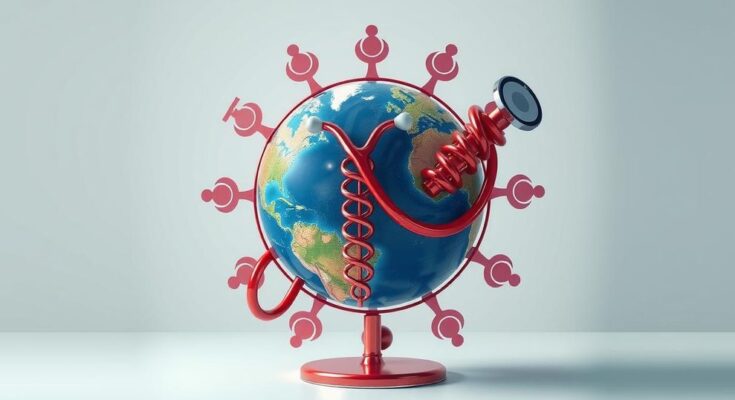The United States and Argentina have both announced intentions to withdraw from the WHO. The decision from the US stems from criticisms of the organization’s handling of COVID-19 and perceived bias towards China. Argentina’s announcement follows similar sentiments regarding the WHO’s operational tactics and its political influences.
The United States, historically the largest financial supporter of the World Health Organization (WHO), announced its intention to withdraw from the organization on January 20, 2017, coinciding with the inauguration of then-President Donald Trump. The administration cited concerns regarding the WHO’s perceived bias towards China and alleged failures in responding to the COVID-19 pandemic, claiming the organization downplayed its severity and delayed the declaration of a global health emergency. Furthermore, the Trump administration expressed dissatisfaction over the effectiveness of the US financial contributions to the WHO.
After a transition of administration, the Biden administration reversed the withdrawal plan initiated by Trump. Despite this change, Trump has reiterated his critical stance towards the WHO. Similarly, Argentina has announced its intention to withdraw from the organization under the leadership of Javier Milei, who has emerged as an ally of Trump. Milei’s spokesperson articulated dissatisfaction over WHO’s management of health crises, especially regarding COVID-19, and mentioned concerns about the organization’s independence from external political influences.
The recent declarations from both the United States and Argentina highlight significant frustrations regarding the WHO’s policies and operations during health emergencies. The US withdrawal, initially proposed under the Trump administration, reflected broader geopolitical tensions, particularly concerning China. Argentina’s decision underscores a similar sentiment, emphasizing the desire for a more autonomous health policy, free from external coercion.
The discussions surrounding the withdrawal from the WHO by both the United States and Argentina reflect deep-seated frustrations with global health governance. The WHO has faced criticism during the COVID-19 pandemic for its perceived responses and alleged partiality towards specific nations, most notably China. This situation has prompted nations to reconsider their participation and support for the organization, leading to calls for reforms within the institution that ensure greater accountability and responsiveness to international health crises.
The intentions of both the United States and Argentina to withdraw from the WHO demonstrate a growing discontent with the organization’s role in global health governance, particularly highlighted during the COVID-19 pandemic. These withdrawals signify a demand for improved independence in health policy decisions and highlight the pressing need for a reassessment of the WHO’s operational effectiveness on a global scale.
Original Source: globalsouthworld.com




